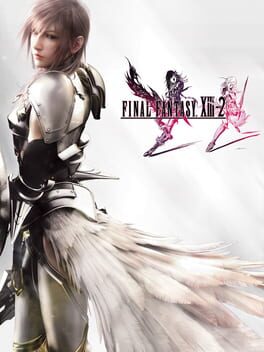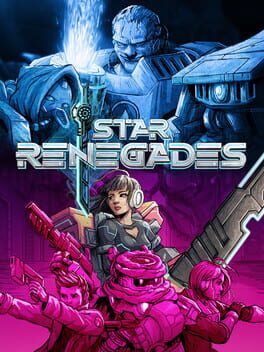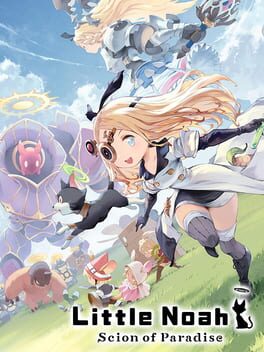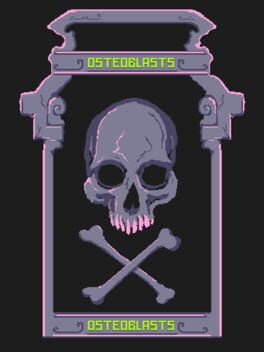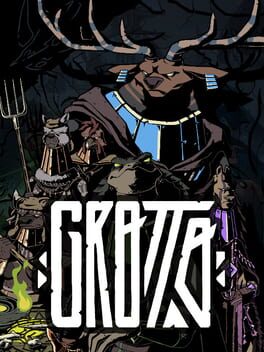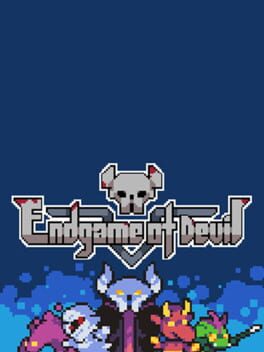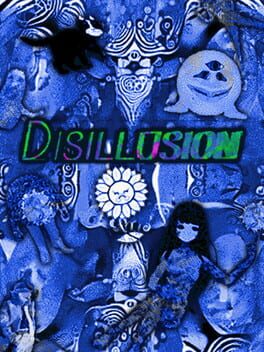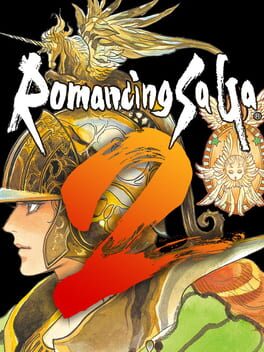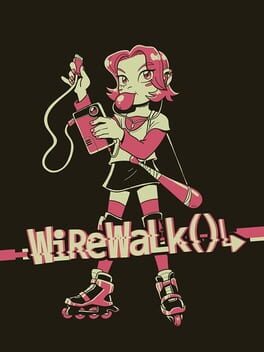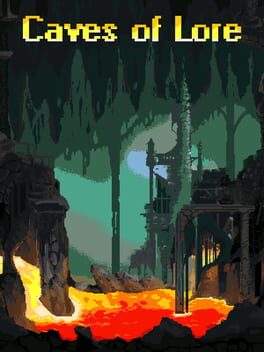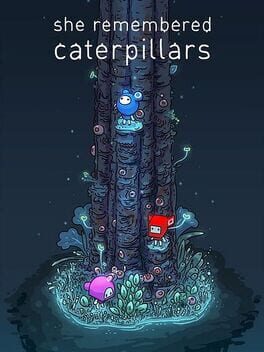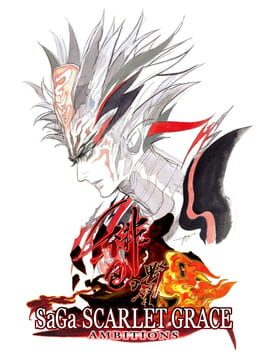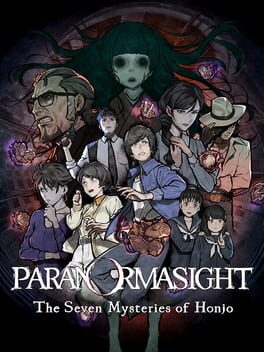jademonkey
2011
This review/collection of thoughts is just for the main story. I plan to play at least some of the DLC and collect some more fragments, but I'm heading out of town for a week or so tomorrow and want to jot down my thoughts beforehand.
Characters: While the characters and character interactions were a high point for me in the first game, here it's just kind of a "meh" point. Serah doesn't have as much personality as I'd like for a lead. She's not a bad character, but she really doesn't live up to the cast from 13. Noel, on the other hand, has a lot more personality and is an enjoyable lead. My only complaint is that I wish they would have leaned a lot more heavily into his back story. He's a little too normal of a dude for someone with his origin. The main villain is well done. I love how they tied in and developed Hope. The character design/costumes in this game were... not my favorite.
Story: I love time travel stories, and this was no exception. It wasn't a particularly cerebral story, but it stuck to it's premise and delivered something that was a lot of fun. I was never as emotional invested in it as I would have liked, but it kept my curious and delivered some good punches at the end. Definitely has me excited to play the DLC and Lightning Returns when I get back.
Battle: Honestly, a huge step back from FF13 in my eyes. The couple of things that they improved just didn't make up for the missteps. In FF13, the fastest and most effective way to finish battles generally involved the use of saboteurs and synergists. If things got hairy, I needed sentinels (well, only in a few places... ) and medics. Staggering enemies quickly and maximizing stagger damage was important. In 13-2, synergists and saboteurs are immensely less effective (and wouldn't be particularly needed otherwise...), to the point that I essentially didn't touch them. I needed sentinels even less than in the first game, and even many boss fights could be won quickly enough that medics weren't necessary. So, the class coverage went from 5.5/6 to like 2.5/6 in any give battle.
The game was simply too easy. I heard this beforehand, so I purposefully dodged fights regularly to try to stunt my growth. Unfortunately, this wasn't always possible (cie'th city was the worst ugh) and I ended up overpowered regardless. After the bitch of a final boss fight in FF13, sailing right through the final bosses with only a single moment of danger was a big disappointment.
Music: All over the place in the best of ways. The nu-metal screamo-ish themes for some of the bosses and chocobos had me grinning like an idiot. There were vocal themes that had strong Nier/Nier Automata vibes to them, which I absolutely loved. The battle themes ranged from wistful electronica to metal adjacent prog rock with some kickin violins. Honestly, the music is a large part of what bumped this game from 3 stars to 4 stars for me. So damn fun and good
Monsters: My other favorite part of this game. I love collecting and breeding monsters, and I enjoyed the little bit I dabbled in here. I kept myself from going too far down the rabbit hole, due to the aformentioned lack of difficulty, but I'm looking forward to playing with it some more during the post game content. Putting newsboy caps on killer robots was a particular highlight for me. Also, Flanitors cracked me up in FF13, and having them actually be a useful member of my time was double plus good.
Linearity: Exact opposite of FF13. I honestly enjoyed the linearity of 13, but this is a damn time travel game. I had a lot of fun popping in and doing a side quest here and there at different points in history. Grabbing the fragments for lore is fun too, and I'm looking forward to finding more.
Graphics: Big step back from 13, but not bad at all for 2011.
Fun Factor: Here's the thing. The game was just fun. Yeah, I think it was worse in most of the more 'serious' elements as compared to 13. But, I had fun almost every step of the way. There were several moments in the game that had me laughing, and a bunch that had me going "That's rad".
Length: The 25ish hours it took me to beat the main story (plus a couple of side areas) were spot on, and I feel satisfied but eager to do some of the side content. That is exactly what I like to feel when I finish the game. Far too many JRPGs overstay their welcome, and I'm so glad this series doesn't.
Conclusion: One of the most enjoyable Final Fantasy games, and a very solid JRPG in general. I have a feeling the soundtrack will find its way to my regular playlists.
Characters: While the characters and character interactions were a high point for me in the first game, here it's just kind of a "meh" point. Serah doesn't have as much personality as I'd like for a lead. She's not a bad character, but she really doesn't live up to the cast from 13. Noel, on the other hand, has a lot more personality and is an enjoyable lead. My only complaint is that I wish they would have leaned a lot more heavily into his back story. He's a little too normal of a dude for someone with his origin. The main villain is well done. I love how they tied in and developed Hope. The character design/costumes in this game were... not my favorite.
Story: I love time travel stories, and this was no exception. It wasn't a particularly cerebral story, but it stuck to it's premise and delivered something that was a lot of fun. I was never as emotional invested in it as I would have liked, but it kept my curious and delivered some good punches at the end. Definitely has me excited to play the DLC and Lightning Returns when I get back.
Battle: Honestly, a huge step back from FF13 in my eyes. The couple of things that they improved just didn't make up for the missteps. In FF13, the fastest and most effective way to finish battles generally involved the use of saboteurs and synergists. If things got hairy, I needed sentinels (well, only in a few places... ) and medics. Staggering enemies quickly and maximizing stagger damage was important. In 13-2, synergists and saboteurs are immensely less effective (and wouldn't be particularly needed otherwise...), to the point that I essentially didn't touch them. I needed sentinels even less than in the first game, and even many boss fights could be won quickly enough that medics weren't necessary. So, the class coverage went from 5.5/6 to like 2.5/6 in any give battle.
The game was simply too easy. I heard this beforehand, so I purposefully dodged fights regularly to try to stunt my growth. Unfortunately, this wasn't always possible (cie'th city was the worst ugh) and I ended up overpowered regardless. After the bitch of a final boss fight in FF13, sailing right through the final bosses with only a single moment of danger was a big disappointment.
Music: All over the place in the best of ways. The nu-metal screamo-ish themes for some of the bosses and chocobos had me grinning like an idiot. There were vocal themes that had strong Nier/Nier Automata vibes to them, which I absolutely loved. The battle themes ranged from wistful electronica to metal adjacent prog rock with some kickin violins. Honestly, the music is a large part of what bumped this game from 3 stars to 4 stars for me. So damn fun and good
Monsters: My other favorite part of this game. I love collecting and breeding monsters, and I enjoyed the little bit I dabbled in here. I kept myself from going too far down the rabbit hole, due to the aformentioned lack of difficulty, but I'm looking forward to playing with it some more during the post game content. Putting newsboy caps on killer robots was a particular highlight for me. Also, Flanitors cracked me up in FF13, and having them actually be a useful member of my time was double plus good.
Linearity: Exact opposite of FF13. I honestly enjoyed the linearity of 13, but this is a damn time travel game. I had a lot of fun popping in and doing a side quest here and there at different points in history. Grabbing the fragments for lore is fun too, and I'm looking forward to finding more.
Graphics: Big step back from 13, but not bad at all for 2011.
Fun Factor: Here's the thing. The game was just fun. Yeah, I think it was worse in most of the more 'serious' elements as compared to 13. But, I had fun almost every step of the way. There were several moments in the game that had me laughing, and a bunch that had me going "That's rad".
Length: The 25ish hours it took me to beat the main story (plus a couple of side areas) were spot on, and I feel satisfied but eager to do some of the side content. That is exactly what I like to feel when I finish the game. Far too many JRPGs overstay their welcome, and I'm so glad this series doesn't.
Conclusion: One of the most enjoyable Final Fantasy games, and a very solid JRPG in general. I have a feeling the soundtrack will find its way to my regular playlists.
2020
Sci-fi JRPG roguelite. Very cool neon pixel art graphics and solid electronic music. Excellent turn-based gameplay focusing heavily on manipulating a timeline and controlling the flow of battle. It's fairly similar to SaGa Scarlet Grace, but quite a bit less complicated and a fair deal easier -- I was able to win on my first run on normal without ever catching a whiff of danger. It still took me 7ish hours, though, so quite hefty for a roguelite. The characters say a lot of goofy sci fi things that are dumb but make me smile and plot was some interdimensional nonsense, but I'm a fan of that too. I'll come back to try out higher difficulties and new characters at some point, but I have other games calling to me for now.
Little Noah is a very cute action platformer roguelite, with a generic and slightly under-baked, but charming story.
The gameplay centers around collecting "lilliput" over the course of each run. These lilliput can then either be assigned to your main attack combo or put in one of two skill slots to use as special moves. Much like Catmaze or Ender Lilies pressing the attack button then summons the lilliput to do an attack and then quickly disappear again. Figuring out how to build your attack chain of lilliput and which skills to use ends up being surprisingly fun. Outside of the lilliput system, the game largely sticks to the genre staples. My only complaint about the gameplay is that the screen can get quite busy and some room see multiple waves of enemies spawning in, leading to somewhat frustrating moments where you don't see an enemy before it's too late.
I'm really not sure why the game is a roguelite, to be honest. The storyline doesn't particularly lend itself to the format and could have used more room to breathe, and I think the systems would have been more fun to interact with in a metroidvania or even standard action platformer format. The last form of the final boss was the only part I struggled with after getting the basics down, but it takes an hour to get back there. I'd seen everything the game had to offer by hour 4, but it took me 6 hours to finish since it took me a couple of times to learn the bosses patterns. Note that I took a few months off between my first couple of runs and finishing the game, and was only a single hit off winning on my second try at the final boss-- if you're good at these games, you could probably win in half the time I took. That said, I enjoyed the base gameplay well enough, it wasn't so bad having an excuse to play for a couple more hours.
Definitely a good game to pick up on sale if you want a cute diversion for a few hours.
The gameplay centers around collecting "lilliput" over the course of each run. These lilliput can then either be assigned to your main attack combo or put in one of two skill slots to use as special moves. Much like Catmaze or Ender Lilies pressing the attack button then summons the lilliput to do an attack and then quickly disappear again. Figuring out how to build your attack chain of lilliput and which skills to use ends up being surprisingly fun. Outside of the lilliput system, the game largely sticks to the genre staples. My only complaint about the gameplay is that the screen can get quite busy and some room see multiple waves of enemies spawning in, leading to somewhat frustrating moments where you don't see an enemy before it's too late.
I'm really not sure why the game is a roguelite, to be honest. The storyline doesn't particularly lend itself to the format and could have used more room to breathe, and I think the systems would have been more fun to interact with in a metroidvania or even standard action platformer format. The last form of the final boss was the only part I struggled with after getting the basics down, but it takes an hour to get back there. I'd seen everything the game had to offer by hour 4, but it took me 6 hours to finish since it took me a couple of times to learn the bosses patterns. Note that I took a few months off between my first couple of runs and finishing the game, and was only a single hit off winning on my second try at the final boss-- if you're good at these games, you could probably win in half the time I took. That said, I enjoyed the base gameplay well enough, it wasn't so bad having an excuse to play for a couple more hours.
Definitely a good game to pick up on sale if you want a cute diversion for a few hours.
2021
Well, this was a fun little RPGmaker experience. Great visuals and audio. I loved the color choices and enemy design. The story felt more like an abstract set of ideas to set a mood than anything completely coherent, but the broad strokes still painted enough of a picture to avoid feeling like nonsense. The combat, stats, and equipment systems were odd, but held together well enough for a 12 hour game. With most stats governing both offense and defense of a certain type, it felt a bit difficult to specialize. Luckily, there were enough intricacies between the variety of passive abilities and the equipment providing both stats and active abilities to keep me engaged for the short run time.
Overall, it was a good time all about the spooky vibes, and I'm down for that.
Overall, it was a good time all about the spooky vibes, and I'm down for that.
2021
Grotto is the reason I play indie games. Cool premise, unique world, very thoughtful story and gameplay, great characters, made me feel things (both good and bad things!), surprised me, neat art design, etc. All of the things I want from a narrative game. I'd recommend it to anyone who likes the genre and is up for the vague choices entailed by being a soothsayer.
2023
Endgame of Devil is a fun little drafting based roguelike, most similar to Luck Be a Landlord. Instead of building a slot machine, you're building an army of evil. Every turn your army is randomly placed on a board along with heroes, who have to be defeated within a time limit. Let too many heroes through, and you lose. Additionally, at the end of every turn you can draft a new unit to your army, and at the end of each wave of heroes, you can choose a new passive for your army -- basically the same design as Luck.
With all that laid out, Endgame of Devil is similar enough to Luck Be a Landlord that you could rightfully call it a clone. However, I find it more fun. There's a smaller pool to draft from, and you get more rerolls and removal. It allows for much more control of what's happening, while still leaving you limited enough that you can't force the same playstyle every time. I also enjoy the aesthetic of building an army of lizard men more than making a slot machine to pay rent haha. The main downsides are that it's perhaps a bit too easy, and you do see the same builds a bit more than would be optimal. Still, I had fun for the full 9 hours it took me to complete the 20 difficulties the game offers.
With all that laid out, Endgame of Devil is similar enough to Luck Be a Landlord that you could rightfully call it a clone. However, I find it more fun. There's a smaller pool to draft from, and you get more rerolls and removal. It allows for much more control of what's happening, while still leaving you limited enough that you can't force the same playstyle every time. I also enjoy the aesthetic of building an army of lizard men more than making a slot machine to pay rent haha. The main downsides are that it's perhaps a bit too easy, and you do see the same builds a bit more than would be optimal. Still, I had fun for the full 9 hours it took me to complete the 20 difficulties the game offers.
2021
Psychedelic dungeon crawling trip through the tower Samsara. The combat will bore you straight into enlightenment on the Noble Truth of dukkha, but that's not the reason to play Disillusion. The avantgarde minimalistic tracks and garishly psychedelic visuals are the real attraction, along with the crazy lore. Lots of Buddhist, Hindu, Greek, Egyptian and (if you find some fake walls to walk through in a secret library on accident) Abrahamic influences come together (in roughly that order of importance) to build a surprisingly interesting world. You also get a lot of nonsense from the poor souls trapped in the tower experiencing the loss of ego to amp up the bizarre indie vibes.
Definitely a neat way to spend 5 hours.
Definitely a neat way to spend 5 hours.
1993
After finishing the game, my thoughts on Romancing SaGa 2 haven't changed much from the status I made the other day.
There is very little story. There are tons of mechanics, but none of them are explained. There were quite a few instances in quests where I'm sure I would have gotten stuck for hours if I didn't consult a guide due to the old school lack of reasonable clues. The combat could be unfairly brutal on a regular basis. While there were no random encounters, screens were frequently flooded with far too many enemies, making some dungeons an absolute slog. The PC port controlled and ran rather poorly, having strange input issues that would cause the game to register many extra button presses at times.
Even with all of the fairly major issues, I ended up getting absolutely sucked into the stupid game. The story telling for the scenarios was quite basic, but had a charm to it that resonated with me. Combat was difficult, but had a surprising amount to offer for an RPG from 1993. I've always enjoyed SaGa style character progression, and RS2 was no exception. Building the empire through projects, research, and recruiting new units was very cool, despite the limited depth to the individual systems. Playing a string of successive emperors, each inheriting the powers of the past was really neat and led to a feeling of playing as the empire, rather than individual characters. That said, I accidentally chose a lady rogue named Beaver as my emperor due to the input issues and she went on to found the most important institution in the land -- the magic university. That's a character I'll never forget!
I actually had more fun with Romancing SaGa 2 than I did any of its SNES Final Fantasy contemporaries, including 6. Actually, to throw out a real hot take -- it might just be my favorite SNES JRPG now.
There is very little story. There are tons of mechanics, but none of them are explained. There were quite a few instances in quests where I'm sure I would have gotten stuck for hours if I didn't consult a guide due to the old school lack of reasonable clues. The combat could be unfairly brutal on a regular basis. While there were no random encounters, screens were frequently flooded with far too many enemies, making some dungeons an absolute slog. The PC port controlled and ran rather poorly, having strange input issues that would cause the game to register many extra button presses at times.
Even with all of the fairly major issues, I ended up getting absolutely sucked into the stupid game. The story telling for the scenarios was quite basic, but had a charm to it that resonated with me. Combat was difficult, but had a surprising amount to offer for an RPG from 1993. I've always enjoyed SaGa style character progression, and RS2 was no exception. Building the empire through projects, research, and recruiting new units was very cool, despite the limited depth to the individual systems. Playing a string of successive emperors, each inheriting the powers of the past was really neat and led to a feeling of playing as the empire, rather than individual characters. That said, I accidentally chose a lady rogue named Beaver as my emperor due to the input issues and she went on to found the most important institution in the land -- the magic university. That's a character I'll never forget!
I actually had more fun with Romancing SaGa 2 than I did any of its SNES Final Fantasy contemporaries, including 6. Actually, to throw out a real hot take -- it might just be my favorite SNES JRPG now.
2021
This is a fun little throwback to Zelda: Link's Awakening with a charming Megaman Battle Network style setting. It's been a long time since I played a game of this style, so I struggled a surprising amount early on. Once I got going, though, it wasn't too hard. There are a nice variety of tools and most of the bosses make good use of the new tool you just used in the dungeon, Zelda-style.
I enjoyed the chiptunes quite a bit, particularly the bioanlaysis lab theme. A little aside: The melody of the main theme is a fairly similar to "We All Lift" from Warframe... I sat there humming it for like 30 minutes trying to figure out what it reminded me of haha.
The ending did feel a bit anti-climactic. After dungeon 3, you basically just have a stand alone boss fight that's fairly straightforward, rather than being more puzzle-y like some of the other bosses. I usually don't complain about a game being too short, but I wouldn't have minded a final dungeon here.
Definitely worth a go if you like old school Zelda, especially for the price.
I enjoyed the chiptunes quite a bit, particularly the bioanlaysis lab theme. A little aside: The melody of the main theme is a fairly similar to "We All Lift" from Warframe... I sat there humming it for like 30 minutes trying to figure out what it reminded me of haha.
The ending did feel a bit anti-climactic. After dungeon 3, you basically just have a stand alone boss fight that's fairly straightforward, rather than being more puzzle-y like some of the other bosses. I usually don't complain about a game being too short, but I wouldn't have minded a final dungeon here.
Definitely worth a go if you like old school Zelda, especially for the price.
2023
I love solo dev projects. It can be very inspiring to see what an individual can come up with and follow through on building. Despite some rough edges, this is one of those inspiring projects.
Caves of Lore is an RPG dungeon crawl with clear influence from the old Ultima games. As you explore the various dungeons and towns, you gather lore from books and people that helps you piece together the mystery of why people seem to be losing their memories. While the overarching storyline and character development are both a bit minimal by modern RPG standards, the world building and lore are very well done and kept me interested throughout the 35 hours it took me to beat the game. There are secrets around every corner, many of which reward you with both unique items in addition to lore. This lore often serves a gameplay purpose as well, cluing you into how to find yet more secrets. This secret hunting, exploration, and gathering clues was easily my favorite portion of the game.
The combat, on the other hand, is a bit more hit or miss. The basic systems are competently executed, with a nice variety of spells and abilities to give you plenty of options in the tactical, grid based battles. However, many of these options begin to lose value as the game progresses. Being able to freeze a large threat is great early game, when there is typical only one or two threatening enemies in combat. Later in the game, fights tend to be bigger, and will drag on if you aren't spamming large AoE DPS and the highest damage single target moves. Many other abilities are just never effective enough to be worth a turn-- lowering defense in a PBAoE just isn't worth a turn when you could otherwise be slamming an enemy for great damage and a chance to stun. This is made more annoying by the fact that mastering these less worthwhile abilities through repeated use is required to unlock other abilities at times. Worse yet, the encounter density is legitimately twice what I would have preferred. You can stealth past enemies, but that makes it far harder to explore and can leave you in a dangerous situation if you need to rest and heal up. Finally, the bosses are absolute pushovers, going down in far too few hits. All of that said, though, the basic systems are enjoyable. Combat IS enjoyable overall, there's just way too much of it and some balance issues remaining here and there.
There are some other annoyances as well. New companions join with almost nothing in the way of skills and absolutely no levels in their spells or abilities. Getting them combat-ready is a huge investment of time and money, and simply wasn't worth it for the last few who joined. One of the forms of secrets are based on runes that are sensitive to the position of the games 3 moons. These become more and more common as the game progresses, and require some fairly tedious waiting. I skipped a few here and there just so I didn't have to wait around so much. Finally, the storyline ended with a clear hook for a sequel rather than properly resolving. That's always a bit frustrating when the sequel is still a long ways out. Of course, I cared enough that I was frustrated, so that's not entirely a bad thing.
Still, despite those issues, I had a really good time with the game. The world, lore, and exploration are enough to move past the game's shortcomings. It's definitely worth the time for those who enjoy the genre.
Caves of Lore is an RPG dungeon crawl with clear influence from the old Ultima games. As you explore the various dungeons and towns, you gather lore from books and people that helps you piece together the mystery of why people seem to be losing their memories. While the overarching storyline and character development are both a bit minimal by modern RPG standards, the world building and lore are very well done and kept me interested throughout the 35 hours it took me to beat the game. There are secrets around every corner, many of which reward you with both unique items in addition to lore. This lore often serves a gameplay purpose as well, cluing you into how to find yet more secrets. This secret hunting, exploration, and gathering clues was easily my favorite portion of the game.
The combat, on the other hand, is a bit more hit or miss. The basic systems are competently executed, with a nice variety of spells and abilities to give you plenty of options in the tactical, grid based battles. However, many of these options begin to lose value as the game progresses. Being able to freeze a large threat is great early game, when there is typical only one or two threatening enemies in combat. Later in the game, fights tend to be bigger, and will drag on if you aren't spamming large AoE DPS and the highest damage single target moves. Many other abilities are just never effective enough to be worth a turn-- lowering defense in a PBAoE just isn't worth a turn when you could otherwise be slamming an enemy for great damage and a chance to stun. This is made more annoying by the fact that mastering these less worthwhile abilities through repeated use is required to unlock other abilities at times. Worse yet, the encounter density is legitimately twice what I would have preferred. You can stealth past enemies, but that makes it far harder to explore and can leave you in a dangerous situation if you need to rest and heal up. Finally, the bosses are absolute pushovers, going down in far too few hits. All of that said, though, the basic systems are enjoyable. Combat IS enjoyable overall, there's just way too much of it and some balance issues remaining here and there.
There are some other annoyances as well. New companions join with almost nothing in the way of skills and absolutely no levels in their spells or abilities. Getting them combat-ready is a huge investment of time and money, and simply wasn't worth it for the last few who joined. One of the forms of secrets are based on runes that are sensitive to the position of the games 3 moons. These become more and more common as the game progresses, and require some fairly tedious waiting. I skipped a few here and there just so I didn't have to wait around so much. Finally, the storyline ended with a clear hook for a sequel rather than properly resolving. That's always a bit frustrating when the sequel is still a long ways out. Of course, I cared enough that I was frustrated, so that's not entirely a bad thing.
Still, despite those issues, I had a really good time with the game. The world, lore, and exploration are enough to move past the game's shortcomings. It's definitely worth the time for those who enjoy the genre.
2022
There are already plenty of reviews on here talking about the artistic merit of Immortality, how good the FMV acting is, the novelty of finding new clips, etc. I mostly agree with those 5 star reviews -- there's some really cool stuff to experience here. Uncovering the plots of the three movies is very cool. The bigger picture is very cool. It's certainly a game worth experiencing.
That said, I found several key aspects of the game to hinder my experience.
The controls for watching the FMV clips somehow managed to be absolutely awful. I think the intent was to feel like your winding an unwinding actual film? I really don't know. I work in computer vision, so I spend a good amount of time scrubbing back and forth over videos. I can say with honesty that I have more fun doing it at work than I did here. The clunky controls actually almost led to me missing a key mechanic of the game and did lead to me having to rewatch a lot of video.
The mechanic for finding new videos -- clicking on something on screen to see something similar from a different clip -- is really cool at first, but it gets a bit frustrating by the end. There's some amount of randomness to the clip you end up at and no clear way to find new clips. So, as the amount of clips you've seen increases, it becomes proportionally that much more difficult to find a new clip. This was mainly an issue in the last couple of hours, but it contributed to a bit to souring the impact of the finale.
Finally, the game soft locked during the finale. What should have been an impactful, shocking, and dramatic moment instead led to 10 minutes of me confusedly wondering if I was just having issues with the controls again or if it really wouldn't continue past the point I was at. A google search and reddit post revealed that this has happened to others -- and that there was no way to retrigger the final sequence without clearing your data and starting over. I tried myself to make sure, but sure enough, no luck. So, I had to watch the last bit on youtube after that interruption.
On top of the gameplay issues, I just didn't quite connect with the thematic components of the game. As I said in the first paragraph, it was extraordinarily well done, but I think I'm just not the person to be strongly impacted by what Immortality offers. There were also a a couple of fairly basic mysteries that I wanted answers to and couldn't find one, even googling afterward.
All of the complaining aside, I'm glad I played the game and will almost certainly circle back to Sam Barlow's other games in the future.
That said, I found several key aspects of the game to hinder my experience.
The controls for watching the FMV clips somehow managed to be absolutely awful. I think the intent was to feel like your winding an unwinding actual film? I really don't know. I work in computer vision, so I spend a good amount of time scrubbing back and forth over videos. I can say with honesty that I have more fun doing it at work than I did here. The clunky controls actually almost led to me missing a key mechanic of the game and did lead to me having to rewatch a lot of video.
The mechanic for finding new videos -- clicking on something on screen to see something similar from a different clip -- is really cool at first, but it gets a bit frustrating by the end. There's some amount of randomness to the clip you end up at and no clear way to find new clips. So, as the amount of clips you've seen increases, it becomes proportionally that much more difficult to find a new clip. This was mainly an issue in the last couple of hours, but it contributed to a bit to souring the impact of the finale.
Finally, the game soft locked during the finale. What should have been an impactful, shocking, and dramatic moment instead led to 10 minutes of me confusedly wondering if I was just having issues with the controls again or if it really wouldn't continue past the point I was at. A google search and reddit post revealed that this has happened to others -- and that there was no way to retrigger the final sequence without clearing your data and starting over. I tried myself to make sure, but sure enough, no luck. So, I had to watch the last bit on youtube after that interruption.
On top of the gameplay issues, I just didn't quite connect with the thematic components of the game. As I said in the first paragraph, it was extraordinarily well done, but I think I'm just not the person to be strongly impacted by what Immortality offers. There were also a a couple of fairly basic mysteries that I wanted answers to and couldn't find one, even googling afterward.
All of the complaining aside, I'm glad I played the game and will almost certainly circle back to Sam Barlow's other games in the future.
Awesome little puzzle game. The ambient music and "fungipunk" aesthetic create excellent vibes to solve the challenging, but not too difficult puzzles. You're presented with bits of text framing a loose narrative prior to each puzzle, which, while not creating an entirely coherent narrative, do a nice job in setting the mood. Much to my shame, I got stuck on the last level and ended up looking up a small hint after nearly 2 hours of missing a stupid simple trick and I'm very disappointed because I have no one to blame but myself since it was actually a very reasonable and well made puzzle and now my experience with this beautiful game is forever tainted by my own weakness and I'm not sure that my fragile intellectual ego will ever recover from this blow but maybe it's good to be humbled from time to time and I probably made the right choice to move on and not torture myself but I still hate everything.
Highly recommended for the puzzle fans out there.
Highly recommended for the puzzle fans out there.
One of the best soundtracks in gaming
Excellent story and characters
Very cool directorial ideas
Strong symbolism and themes
Mediocre combat
Some good bosses
Some annoying but easy bosses
Terrible fetch quests
Horrible repetition
If I were Willow Smith and could make time go slow or fast however I please, then this would be a 5/5. Unfortunately, I am temporally fettered.
Excellent story and characters
Very cool directorial ideas
Strong symbolism and themes
Mediocre combat
Some good bosses
Some annoying but easy bosses
Terrible fetch quests
Horrible repetition
If I were Willow Smith and could make time go slow or fast however I please, then this would be a 5/5. Unfortunately, I am temporally fettered.
Scarlet Grace has the best combat of any JRPG I've ever played. I don't want to write an entire treatise on the mechanics, but with all of the timeline manipulation, counters and interrupts, unite attack mechanic (if defeating an actor brings two actors of the same team adjacent on the timeline, a special attack happens), status effects, damage types, delayed spells, cover mechanic, etc. each turn becomes a puzzle leading to easily the most dynamic decision making I've ever experienced in the genre. The combat can be brutally hard -- there's almost always a risk of death, even in regular battles. That said, it's exceptionally fair -- if you use your toolbox appropriately and come up with the right strategy, you'll make it through. Also the final boss, holy crap. They put phases inside the phases and I kept thinking I was gonna die, but somehow scraped by. Top notch send off.
Outside of the combat, though, the game is very stripped down. You essentially run around a world map to trigger events or combat at nodes. Towns are just a menu and the events are largely limited to simple dialogue with character models making poses to show emotion. As with most SaGa games, the overarching story is a bit vague, but still fairly enjoyable. The side quests have stronger writing, though they can still be rather strange and a bit stilted at times. I'm down for that, but it's definitely not for everyone.
Oh, there's 4 different main characters to chose from at the start, each with a different scenario. I chose Balmaint, the executioner. His story is very on-rails for a SaGa game, but I liked Balmaint, Arthur, and company, so it was all good.
I'm a big fan of Kenji Ito's music, and Scarlet Grace is no exception. Similarly, I absolutely love Tomomi Kobayashi's illustrations, and was very happy to see a couple actually show up in game. The character designs are great, though graphics themselves clearly come from a lower budget Vita game.
Scarlet Grace: Ambitions is easily my favorite SaGa game to this point.
Outside of the combat, though, the game is very stripped down. You essentially run around a world map to trigger events or combat at nodes. Towns are just a menu and the events are largely limited to simple dialogue with character models making poses to show emotion. As with most SaGa games, the overarching story is a bit vague, but still fairly enjoyable. The side quests have stronger writing, though they can still be rather strange and a bit stilted at times. I'm down for that, but it's definitely not for everyone.
Oh, there's 4 different main characters to chose from at the start, each with a different scenario. I chose Balmaint, the executioner. His story is very on-rails for a SaGa game, but I liked Balmaint, Arthur, and company, so it was all good.
I'm a big fan of Kenji Ito's music, and Scarlet Grace is no exception. Similarly, I absolutely love Tomomi Kobayashi's illustrations, and was very happy to see a couple actually show up in game. The character designs are great, though graphics themselves clearly come from a lower budget Vita game.
Scarlet Grace: Ambitions is easily my favorite SaGa game to this point.
I absolutely loved my time with Paranormasight. It deserves the effort of a well structured review, but I'm not feeling motivated at the moment, so I'm just going to write.
Paranormasight is more of a supernatural mystery visual novel than horror as it bills itself. There are certainly horror elements, but the mystery is the focus and it's done extremely well. There was never a moment that I felt like something just came out of left field -- there were surprises, but they always made sense in the end. It was an excellently thought-out and written storyline.
I think the characters may have been the highlight here, even with the overall narrative and mystery being so well done. The diversity was nice -- from your standard anime high schoolers, to mid-20s, a mid 30s mother, a detective in his 50s, and so on. I found that they all behaved believably... well, unless there was a supernatural reason for them not to. The backstories and motivations were solid for each, and humor was used fairly liberally and effectively in character building moments.
The art and music were great. The creepy atmospheric tracks were spot on, the more dramatic choir themes were excellent, and I very much enjoyed the somewhat goofy jazz theme that would accompany a pair of detectives in the less dire moments. The character designs and expressions were top notch, and I enjoyed the scenery as I searched each of the games locations for the (optional) collectible Mocking Bird stickers -- which included such greats as a penguin with a pompadour and an eagle with a mohawk and biker jacket.
In the 13 hours it took me to reach the true ending, there was only one point that I found a puzzle to be annoying. It required advancing a completely unrelated and fairly easy to miss conversation in a different scene altogether. I generally made sure to exhaust all conversation options, so it was mainly bad luck that I missed this one and couldn't figure out how to proceed for a bit. Still, there was no indication of what I needed to do other than a brute force search. That said, all of the other puzzles were well done and required a bit of clever thinking. There are some meta elements to some of the puzzles that I found well done and enjoyable to figure out.
There's a couple of other quick things to mention. While the game features multiple endings, it is essentially a linear affair -- there's no real branching to be had here. Perfectly fine with me, but I know that's not everyone's cup of tea. Also, as mentioned above the horror elements are fairly light. If you want to be frightened, this isn't the game. Again, that's actually to my preference -- I love games that have a horror flavor without actually messing up my sleep haha.
Paranormasight is more of a supernatural mystery visual novel than horror as it bills itself. There are certainly horror elements, but the mystery is the focus and it's done extremely well. There was never a moment that I felt like something just came out of left field -- there were surprises, but they always made sense in the end. It was an excellently thought-out and written storyline.
I think the characters may have been the highlight here, even with the overall narrative and mystery being so well done. The diversity was nice -- from your standard anime high schoolers, to mid-20s, a mid 30s mother, a detective in his 50s, and so on. I found that they all behaved believably... well, unless there was a supernatural reason for them not to. The backstories and motivations were solid for each, and humor was used fairly liberally and effectively in character building moments.
The art and music were great. The creepy atmospheric tracks were spot on, the more dramatic choir themes were excellent, and I very much enjoyed the somewhat goofy jazz theme that would accompany a pair of detectives in the less dire moments. The character designs and expressions were top notch, and I enjoyed the scenery as I searched each of the games locations for the (optional) collectible Mocking Bird stickers -- which included such greats as a penguin with a pompadour and an eagle with a mohawk and biker jacket.
In the 13 hours it took me to reach the true ending, there was only one point that I found a puzzle to be annoying. It required advancing a completely unrelated and fairly easy to miss conversation in a different scene altogether. I generally made sure to exhaust all conversation options, so it was mainly bad luck that I missed this one and couldn't figure out how to proceed for a bit. Still, there was no indication of what I needed to do other than a brute force search. That said, all of the other puzzles were well done and required a bit of clever thinking. There are some meta elements to some of the puzzles that I found well done and enjoyable to figure out.
There's a couple of other quick things to mention. While the game features multiple endings, it is essentially a linear affair -- there's no real branching to be had here. Perfectly fine with me, but I know that's not everyone's cup of tea. Also, as mentioned above the horror elements are fairly light. If you want to be frightened, this isn't the game. Again, that's actually to my preference -- I love games that have a horror flavor without actually messing up my sleep haha.
